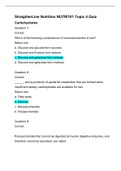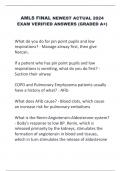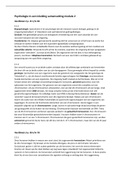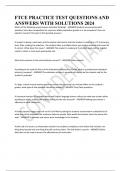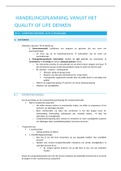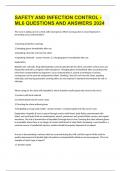Summary
Summary Historians and the Holocaust - An overview of interpretations
- Institution
- CIE
A thorough and well-rounded overview of the shift in historians' perspectives on the holocaust, why it happened and who was to blame. This summary provides analysis of its own as well as of famous historians such as Raul Hilberg, and helped enable students to achieve A* at A level.
[Show more]




